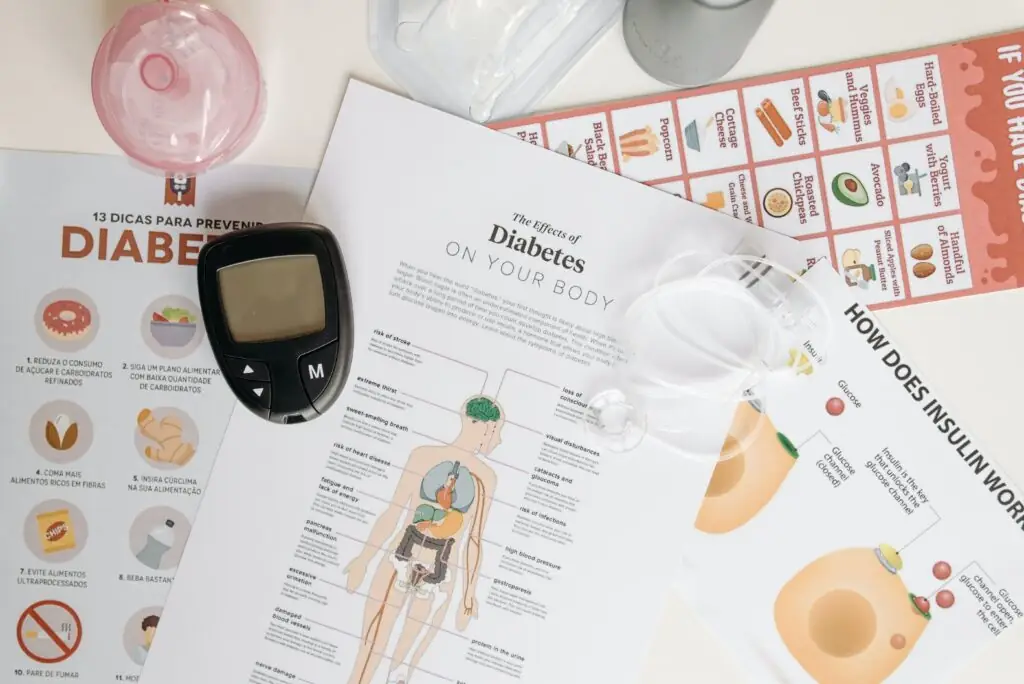Why Is Eating Red Meat Bad for You: A Review

Doctors often say that you should cut back on your use of red meat. Why is eating red meat bad for you? What types of meat should you avoid? What are the better substitutes for red meat?
Read on, and you will find the answers to all these and numerous other questions.
Is It Healthier to Not Eat Red Meat: Types of Red Meat

Before delving into the health benefits (and alleged negative effects) of red meat, it is important to explain the differences between various types of meat.
The gastronomic definition is based on mere appearance and is both simple and complicated.
- From a culinary point of view, any meat that is red when raw is red meat. This includes such meats as beef, venison, and boar. Some cuts of pork are also called red meat in gastronomy.
- On the other hand, culinarily speaking, such meats as lamb, rabbit, and veal (as well as some cuts of pork) are white meats.
- Meat from chicken is white meat, although the thigh of chicken is called dark meat.
Nutritional science bases its definition on the amount of the protein myoglobin that is present in meat. So, according to scientists:
- Any meat that is obtained from mammals is red meat (including beef, venison, boar, lamb, rabbit, veal, and all cuts of pork).
- All types of meat that come from fowl are called white meat.
Myoglobin gives red meat its color for the same reason why our blood is red. Myoglobin binds a lot of iron, which in turn helps keep oxygen in the tissues. Our blood is red because it contains red blood cells, which use iron to carry oxygen. So, red meats are richer in iron compared to white meats.
Based on the conditions in which meat is raised, it can be classified as:
- Conventional (animals are confined, and their feeds are based on grans)
- Grass-fed (animals are not confined and forage for grass)
- Organic (animals are allowed to forage, their feed is purely organic, and no hormones and antibiotics are used).
Lastly, depending on how they have been processed, red meats are divided into:
- Processed meats (ones that have been cured or smoked)
- Unprocessed meats (ones that have been minimally processed, like ground or cut)
So, it is possible for some red meats you are buying to be conventionally grown and unprocessed, while others might be organic and processed.
Is Not Eating Red Meat Bad for You: Nutritional Benefits of Red Meat

Red meat is high in important nutrients, including:
- Protein. Protein makes up about 20-25% of red meat’s weight. What’s more, the protein you get from meat is complete (i.e., it contains all essential amino acids).
- Zinc (65% of the daily value or DV per 100 grams). This dietary mineral is essential for your skin and immune system. Copious quantities of zinc are present in the prostate.
- Copper (40% DV). Lack of copper in the diet may lead to the development of severe blood disorders.
- Selenium (30% DV). Selenium is needed for the natural detoxification of the body as well as for your thyroid gland.
- Phosphorus (30% DV). Phosphorus is absolutely crucial for bone health.
- Potassium (5-7% DV). This dietary mineral helps reduce blood pressure.
- Vitamin B12. This vitamin is essential for the proper metabolism of iron: lack of this vitamin in the body or inability to absorb it from food may lead to pernicious anemia. What’s more, B12 is critically important for the nervous system.
- Vitamin B3 (niacin). This vitamin is essential for both your skin and nervous system.
It is important to say that 100 grams of beef also contain about 20% of the DV of iron in the so-called heme form. Heme iron is more bioavailable compared to iron you get from plant sources. The National Institute of Health lists these people as those who are at risk of iron inadequacy:
- Young children
- Pregnant women
- Women with menorrhagia (heavy menstrual bleeding)
- People with gastrointestinal disorders or those who underwent gastrointestinal surgery
- People with heart failure
- People with cancer
- Frequent blood donors
All these groups might greatly benefit from including red meat in their diet.
Last but not least, red meat is high in energy (about 250 calories or about 10% DV). This food might be a good way to replenish your energy supplies after an intense workout.
Why Is Red Meat Not Good for You: Negative Health Effects
Unfortunately, eating red meat has disadvantages as well.
First of all, it is high in saturated fat (more than 5 grams per 100 grams of beef). Some scientists believe that consumption of saturated fat is linked to increased ‘bad’ (LDL) cholesterol levels, which might contribute to heart disease. For this reason, it is usually recommended that you always eat lean red meat that contains noticeably lower quantities of saturated fat.
Second, highly processed meat is often very high in salt, which might lead to elevated blood pressure and also result in heart disease. People who are sensitive to sodium should avoid salt (sodium chloride) in their diet, so processed red meat might be an unwise choice for them.
Lastly, eco-conscious consumers often avoid red meat (especially beef) because it has been linked to the emissions of methane, a greenhouse gas. So, why is eating red meat bad for the environment? Cows produce methane in their rumen and release it into the atmosphere. Methane prevents heat from escaping into space, which in turn might contribute to global warming. While additional research is still needed, eco-activists believe that if we reduce our consumption of red meat (first and foremost beef), the rate of climate change might be decreased.
Is Eating Red Meat Bad for Your Heart: Heart Disease

Although there is evidence that seems to back up the theory that saturated fat from all types of red meat might increase the risk of heart disease — like this 2020 wide-scale study — there are also numerous researchers who disagree with these conclusions.
Thus, in a wide-scale 2021 study, scientists found no relation between unprocessed red meat and cardiovascular disease. On the other hand, the same study shows that a higher intake of processed meat leads to a greater risk of coronary heart disease.
In a 2017 study, researchers monitored the consequences of eating small portions of red meat (1.25 oz or 35 grams) every day. No negative changes in blood lipids and blood pressure levels were observed.
Lastly, there are scientists who disagree with the hypothesis that saturated fat leads to artery-clogging and related health risks.
To sum up, while additional research into the safety of unprocessed red meat is still needed, available scientific data demonstrate that regular use of processed meat is indeed bad for your heart. People who suffer from heart disease should exclude the processed variety from their diet.
Does Red Meat Cause Health Problems: Kidney Health
Aside from the high saturated fat content, red meat is tied to other potential heart disease risks.
As confirmed by recent studies, when red meat is being digested, bacteria in the gut produce trimethylamine N-oxide (TMAO). This toxic compound is associated with an increased risk of heart disease. As TMAO needs to be moved out from your body with urine, additional strain is put on your kidneys.
For these reasons, researchers recommend that people who suffer from chronic kidney disease should significantly reduce their red meat intake.
Is Eating a Lot of Red Meat Bad for You: Type 2 Diabetes

There are two 2021 studies that demonstrate that swapping red meat in your diet with eggs or other sources of protein results in a lower risk of type 2 diabetes. Although this is true for both processed and unprocessed red meat, the processed variety was found to have a significantly greater impact on the development of diabetes.
Another 2021 review compares the risks of developing type 2 diabetes in people who consume the highest amounts of red meat and people who avoid this food:
- Those who eat large quantities of processed red meat are 27% more likely to develop type 2 diabetes;
- For those who consume a lot of unprocessed red meat, this increase in the risk level is 15%.
While additional research is still required, if you have been diagnosed with type 2 diabetes, reduce your consumption of both unprocessed red meat and processed meat.
Why Is Eating Too Much Red Meat Bad for You: Cancer
Numerous studies demonstrate that eating red meat daily might increase the risk of cancer. In a wide-scale 2019 study, people who ate larger portions of red meat per day had a 10% higher mortality risk.
If anyone in your family had colorectal, pancreatic, or prostate cancer (as well as other types of cancer), it might be reasonable to reduce your red meat consumption. This is especially true for eating the meat of the processed variety, which is believed to be especially detrimental to health.
Is Eating Red Meat Bad for Your Skin?
While there are studies that tie eating red and processed meat to the development of heart disease, cancer, and type 2 diabetes, there are no quality studies that would link eating red meat to skin blemishes or any other skin conditions. On the contrary, as red meat contains high quantities of iron, it may help you avoid anemia and a pale complexion usually associated with it.
Is Eating Red Meat Rare Bad for You?

Nutritionally speaking, there are no differences between rare and well-done steaks. Still, eating rare meat poses a threat to health as it might be contaminated with living bacteria such as listeria and salmonella.
Rare beef steaks (the same goes for lamb and veal) should be cooked at a temperature of at least 62°C (145°F). If you use ground versions of these meats, the temperature should be even higher. Such red meat as pork (and such white meat as poultry) should never be eaten rare.
Thus, if you do not have adequate culinary experience, do not prepare your steaks yourself: leave this task to a practiced professional.
Is Eating Red Meat Bad for You When Pregnant?

As was already said, processed red meat often contains higher quantities of salt that contribute to elevated blood pressure (hypertonia). As pregnant women are prone to hypertonia (especially during the third trimester of pregnancy), they should avoid eating processed meat altogether.
On the other hand, unprocessed red meat is an excellent source of iron and vitamin B12, which are essential for anemia prevention. So, as long as you stick to unprocessed red meat, feel free to use it for your meals. After you have given birth, however, it might be wise to reduce its consumption.
How Often Is Too Often to Eat Red Meat?
Even those researchers who believe that you should limit your unprocessed red meat consumption do not urge you to totally exclude it from your diet. One specific recommendation is that you should limit your consumption of unprocessed red meat to no more than 3 servings (or about 12-18 oz) per week. Another less specific recommendation is that you can only eat red meat ‘once in a while’ and stick to leaner cuts that weigh no more than 6 oz (170 grams).
There are also scientists who disagree with the above-described norms and focus on the important fact that unprocessed red meat contains high-quality protein. They believe that eating unprocessed red meat more often than three times a week won’t do you much harm.
Still, all experts agree that you should definitely limit your consumption of processed red meat. Do not eat it more often than once per week, and make sure that your portions are small.
Is Eating Red Meat Bad for Your Health: Good Substitutes for Processed Meat
If you have decided to cut back on your use of red meat, do not make the mistake of replacing it with less nutritious food surrogates or highly processed foods: this will do a lot of harm to your health.

Use these healthy sources of protein instead:
- Poultry
- Fish
- Beans (black, pinto, kidney, and other varieties)
- Chickpeas
- Green peas
- Nuts
- Buckwheat
- Quinoa
- Amaranth
- Lentils
- Oatmeal and oats
- Rice.
Conclusion
Now you know why is eating red meat bad for you. Many health experts recommend that you limit your consumption of the unprocessed variety to three times per week and reduce the quantities of processed red meat in your diet to an absolute minimum.